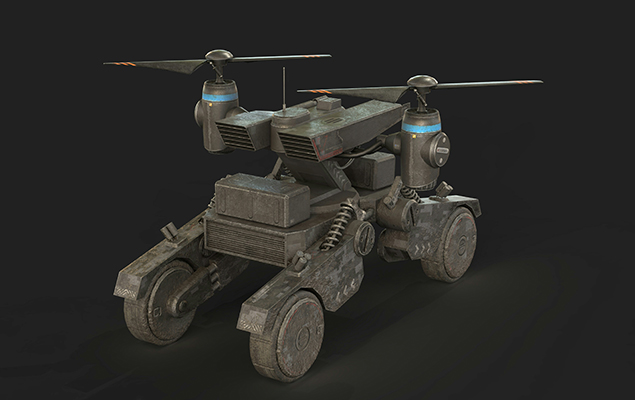The various wars that have taken place around the world in recent years, including the Russia-Ukraine war and the Swords of Iron War, have placed the DefenseTech sector in the spotlight. Amid changes in global security dynamics and escalating geopolitical tensions in different regions, technological gaps in the battlefield have revealed and magnified the criticality of DefenseTech, creating new opportunities for entrepreneurs and sparked significant interest from investors and venture capital funds.
This trend has not bypassed Israel. Since the outbreak of the Swords of Iron War, the number of ventures developing innovative technologies and cutting-edge solutions tailored to security-military needs doubled between 2023 and 2024 to more than 300 DefenseTech startups, alongside a rise in investments in this sector.
The prolonged war, with an unprecedented number of reservists serving numerous rounds of duty – some of whom are high-tech and technology professionals – has created fertile ground for the development of innovative inventions.
These reservists, particularly those who have been on the battlefield (not necessarily from technological units), are exposed to operational challenges over time, identify technological gaps and needs firsthand, driving them to develop creative and innovative solutions for them.
At the same time, the Israeli Defense Ministry’s DDR&D (The Directorate of Defense, Research and Development) (MAFAT) collaborates with many startups on developing and fine-tuning technologies aligned with modern security needs.
With its remarkable record of defense capabilities predating the founding of the State of Israel, Israel is a key player in the global DefenseTech sector and an attractive hub for international investors looking for proven capabilities in the defense sector.
What is DefenseTech?
DefenseTech is a technological security field that focuses on the development and implementation of cutting-edge technologies for both offensive and defensive applications. This field includes a wide range of technologies, such as advanced weapon systems, air defense systems, cybersecurity technologies, robotics, artificial intelligence, autonomous systems, advanced sensors, and encrypted communications.
Artificial Intelligence, Autonomous Systems and Robotics
One of the most rapidly developing fields in the past two years is Artificial Intelligence (AI), and with its increasing accessibility worldwide, we are able to witness advanced AI technologies being incorporated into military systems enabling them to operate autonomously or semi-autonomously. These systems use AI to optimize operations, respond intelligently and swiftly to evolving combat situations, and sometimes, to operate without needing direct human intervention.
According to senior officials in the Israeli Ministry of Defense, in the not-too-distant future, the battlefield will feature of a combination of human military forces, AI systems and autonomous tools, such as drones and UAVs, with AI also being deployed for cyber warfare and real-time data analytics to minimize the risks to combat forces on the ground.
Cyber Warfare and Cyber Security
Cyber technologies are another key strategic component of DefenseTech. Cyber tech companies develop state-of-the-art defensive capabilities, such as neutralizing cyber threats to military systems and military and civil infrastructures, as well as sophisticated offensive capabilities designed to disrupt and neutralize enemy systems. Simultaneously, the development of secure and disruption-resistant communication systems is receiving increasing attention in research field, particularly due to the challenges of the modern battlefield.
Alongside technological advancements, cyber warfare has become a central arena in global conflicts directed at targeting critical infrastructures, command and control systems, and even classified information. Israeli companies are continuing to develop smart tools for monitoring, thwarting and responding to cyberattacks, both independently and in collaboration with government ministries.
The Legal Challenges in the DefenseTech Sector
While these ideas and solutions will help security forces on the ground and, hopefully, will also lead to growth and prosperity in the Israeli market, they might also encounter complex legal challenges. Here are some examples of legal challenges in this field:
Supervision of and Restrictions on Defense Exports
DefenseTech companies are subject to a complex regulatory framework at both the local and international levels. In Israel, the main regulatory authority is the Defense Exports Control Agency (DECA), which is responsible for implementing and enforcing the Defense Exports Control Law. DECA implements Israel’s policy and protects its interests at two levels: (a) protecting Israel’s national security and defense interests through counter-proliferation of technologies, information and defense equipment; and (b) supporting the industry by improving and streamlining the wide variety of services given to defense exporters relating to licensing, export controls, training, and enforcement. DECA has the authority to impose restrictions on DefenseTech exports based on national security considerations and Israel’s strategic interests.
Intellectual Property Rights
Intellectual property (IP) rights in the DefenseTech sector are diverse and include, inter alia, technologies protected by patents, copyrights, trade secrets, and more. To maintain a competitive advantage and block competitors, companies operating in the DefenseTech sector, just like in other sectors, must protect the intellectual property of the technological solutions they develop.
While the recommendations for managing DefenseTech related IP are quite similar to those in other high-tech fields, the registration and regulations of DefenseTech IP assets pose unique challenges.
In Israel, the unique challenge in registering a patent for defense-related development lies in balancing between technological innovation and national security. For example, the Israeli Patent Law grants the Minister of Defense extensive powers to intervene in the registration proceedings, to restrict publication of sensitive security information and to supervise the registration of patents abroad.
Israeli citizens, residents, and soldiers (regular, permanent, or reserve) are required to notify the Ministry of Defense of their inventions with military value and obtain prior approval before registering them as patents abroad.
***
Barnea Jaffa Lande provides comprehensive and ongoing legal counsel to entrepreneurs, startups and companies, funds, and investors in the defense-tech sector, supporting them in navigating complex legal, corporate, and regulatory challenges, including engagement with governmental entities.
In addition, we assist with investment, financing, and acquisition transactions (including due diligence processes), licensing, product development agreements, and intellectual property matters, while offering tailored solutions to meet our clients’ specific needs.


